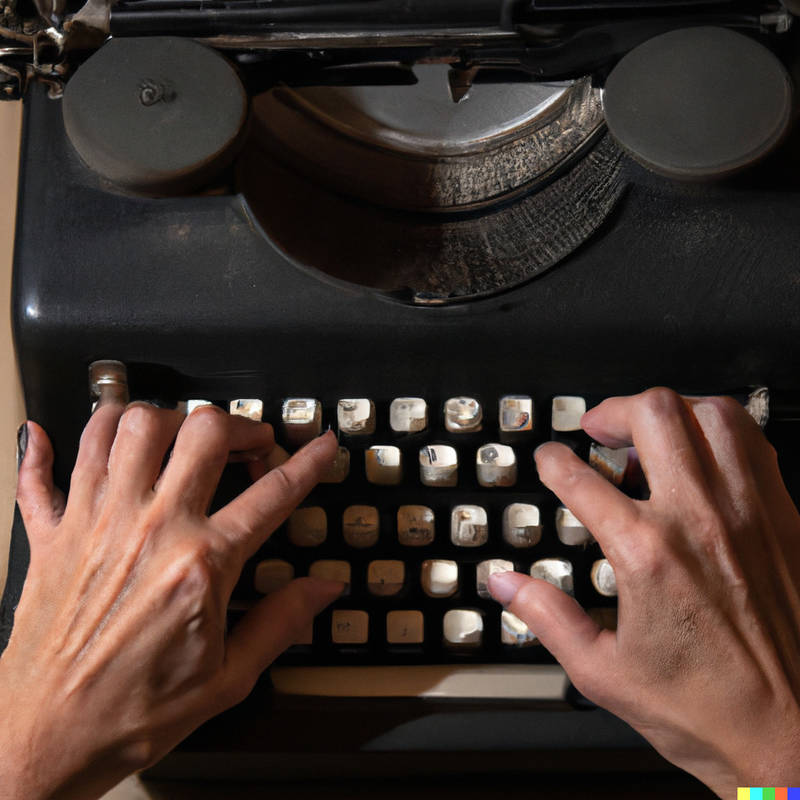

You’ve likely heard by now that big changes are happening in the design industry. Or really, any industry that relies on computers to handle complex tasks. In the blink of an eye, the apps we use to design websites, edit photos, and create content have shifted from assistive technology to generative, meaning tasks that used to take hours or even weeks can be completed in minutes with the help of artificial intelligence.
The promise of instant results is certainly exciting, but does getting the job done fast also mean we’re getting the job done right? There are risks involved in using generative AI to help promote your business, and as we dive head-first into the new AI universe we’re finding out that fast isn’t always better, and you definitely still need to check your work.
By entering a few words or sentences into a prompt, AI can generate never before seen images from a combination of sources used to train it. Computer-generated images and videos still have a long way to go in terms of accuracy and overall quality but the current state of image generation is still an impressive feat.
However, the results aren’t always completely accurate, as you’ve likely seen with misshapen objects or hands with extra fingers. These images are great entertainment, but do they have a place in your business marketing? Probably not. At least not yet.
Because the training data has at times been copyrighted material, your “original” image may not be safe to use for commercial use since no compensation was given to the original artist or photographer. In fact, Getty Images is currently pursuing legal action against one of the image generators for training its AI on their protected images.
Much like using an image you found online, if you don’t own the copyright or didn’t pay for a commercial license to use it, incorporating imagery from unlicensed sources is risky business.
Here’s what technology law attorney Leigh Gill at Immix Law has to say about the legal implications:
"Generative AI can be a huge time savings, but there are two significant legal unknowns that will take time to resolve. First, tools like ChatGPT, Dall-E, and Stable Diffusion have been trained on copyrighted materials in what the programmers assert is a fair use – that’s a legal theory that hasn’t been tested, and users of the tools might be getting derivative works that limits the users' rights. Second, who owns the work generated by an AI tool is an open question, and businesses who use these tools might be getting a copyrighted work that belongs to someone else. On the flip side, a business might find they can’t protect the IP they generate with an AI tool. Because the answers to these questions are unknown, businesses relying on generative AI may be forced to scramble when the law changes."
Not only can we generate brand-new images out of thin air in just seconds, we can also prompt a machine to write highly detailed copy. With the introduction of Chat GPT there has been an explosion of AI-generated text including website copy and even full news articles.
In our initial tests of these systems we haven’t run across as many copyright-related issues when compared to image generation but we’ve still seen mixed results. When summarizing facts and detailed technical information AI seems to return fairly accurate text but as we delve into opinion or advice-related content, factual inaccuracies and emotionless copy abounds.
As of this writing, Google has stated that they reward high-quality content, however it is produced. Though they will not automatically penalize a website for using AI generated content they still recommend making sure your site contains accurate, high-quality information written with your audience in mind. Before incorporating generated content to your marketing efforts, be sure to ask yourself, “does this add value for my customers?”.
Generative text is likely safer to use for your business than images, but you’ll still want to pay close attention to output to make sure you are presenting accurate and readable content.
So what’s next? Where do we go from here?
In a field that strives for authenticity, is there a place for artificial intelligence? Maybe, but the increased productivity promised by generative AI won’t be able to fully replace human-to-human interaction any time soon. And for that reason, we’ll continue to use AI as an assistive technology to connect with customers more efficiently but not to generate an artificial connection between brands and consumers.
No robots were used in the creation of this text.
Posted May 11, 2023